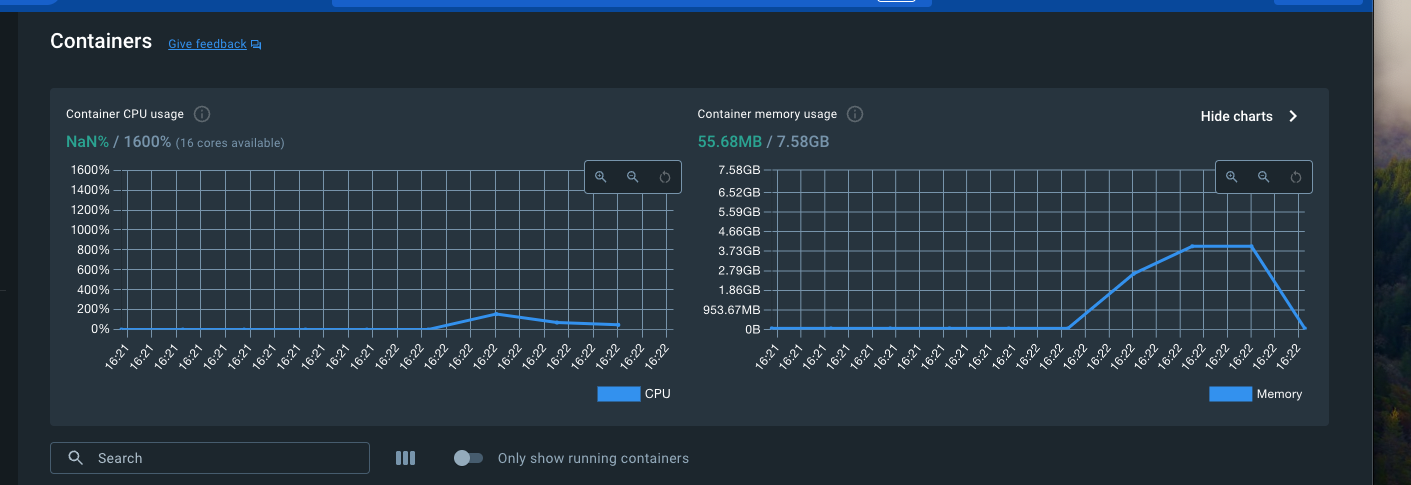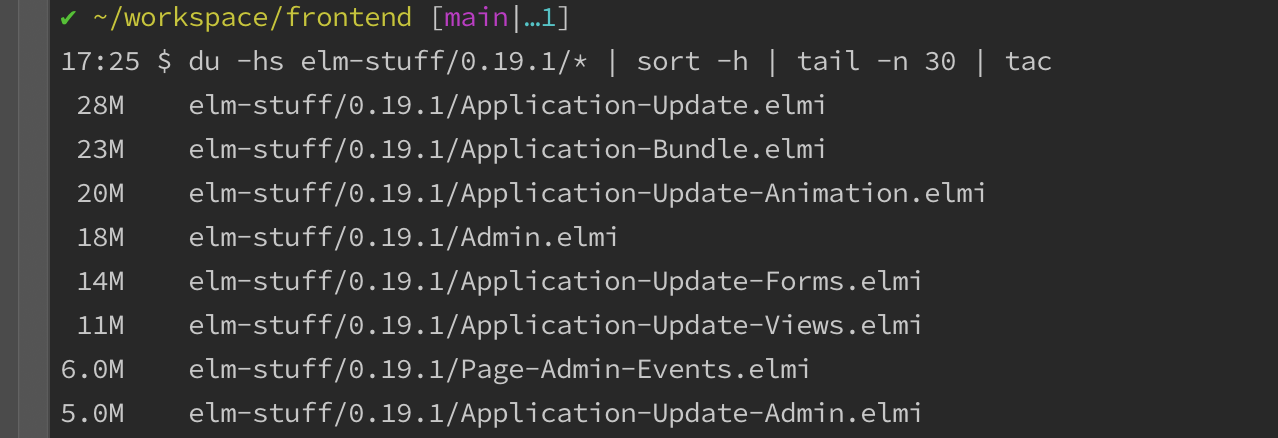Opaque types
as an Elm design pattern always made sense - for libraries. The idea being that I use a
union type
for a plain old Elm object, instead of an
alias type
, even when there's only one
variant
.
So from:
type alias Model = { … }to
type Model = Model { … }I would do this to be able to
expose
the
type Model, but not the
Model {...}.
That way I (
the library author
) can change
Model {...} without you (
the one using my library
) having to change all your code.
"Well... my Elm project isn't a library, so I don't need this 🤷", I thought to myself.
But I was wrong...
But I was wrong...
The issues started when my CI system consistently failed to build my Elm project.

A little sleuthing led me to find that my CI system was actually killing the
elm make process because it was consuming too much memory. I was incredulous at first but here's the make process again in a local docker image, with a 4GB memory limit.

The make process spikes the memory all the way to the cap at 4GB, and is subsequently killed.
Running the following command, led me to believe that it was my liberal usage of
type alias contributing to excessive amounts of garbage collection during the
elm make process.
# inside source code folder
du -hs elm-stuff/0.19.1/* | sort -h | tail -n 30
The helpful folks at
Elm Slack
taught me that
.elmi files
>10MB are considered
extremely
large. Even
>1MB was pushing it.
The neat thing...
The neat thing...
As soon as I converted my 3 most prominent
alias types
to the
opaque types
mentioned earlier, all the issues went away: the build failures, the memory spikes, and the slow compilation speeds.
I'd assume that the compiler has to perform double duty (
checking all the fields
) every time that an
alias type
must be passed into a method invocation. This being because any object would qualify as the
alias type
so long as all the fields match. There doesn't seem to be any official best practice about this in their docs...
But the neat thing is that these
union types
with one
variant
get treated as first-class citizens in Elm. So long as there's only one variant, "unwrapping" the object through the method signature passes compilation.
view : Model -> Html Msg
view (Model model) =
-- ...Just one way, among many, that Elm makes my life easier.


